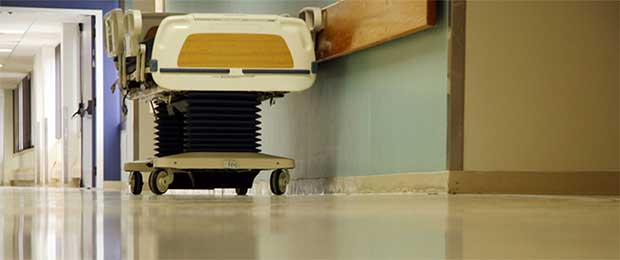Organ donation following euthanasia is in the pipeline in the Netherlands. Twenty-three cases have been recorded since the decriminalisation of euthanasia in this country in 2012. Although this practice “is still in its infancy”,there are calls for a framework to define “how to co-ordinate death and transplantation in another body” to “facilitate” the procedure. Directives have just been officially issued to Health Minister, Edith Schippers. They have been drafted by health professionals, patient associations, ethicists and patients’ families, and financed by the Dutch Transplantation Foundation.
“Patient autonomy” is the underlying principle in these directives. The request to donate organs“must come spontaneously from the patient without it being suggested to him or her”, and the patient “must satisfy all of the conditions of euthanasia”. The European Institute of Bioethics acknowledges that compliance with this condition “is difficult to check”: “How can it be proved that this was actually the case and that the subject simply wasn’t raised one day in a family conversation? Moreover, wouldn’t an indirect suggestion by the media, recounting the story of a person who followed this approach, have had as much impact as a suggestion from a family member? We have to ask these questions knowing how important organ donation is and the strong backing from commercial and pharmaceutical companies”.
Furthermore, organ donation following euthanasia would suggest that the euthanasia was carried out in a hospital. According to the guidelines, “a hospital physician acting independently from the organ collection service must check that euthanasia was carried out in accordance with the regulations (…), and a medical examiner must be on site to confirm the cause of death and produce the death certificate immediately”. As far as the European Institute of Bioethics is concerned, “timing is governed by the hospital, not by an autonomous patient who, right up until the last minute, might decide not to go ahead with euthanasia”. The body must also be “transferred quickly to the operating theatre”. Regarding this point, “several ethicists have emphasised the fact that this rapid transfer could prevent relatives from saying their farewells and could thus delay the grieving process”.
One of the doctors who compiled the directives believes that, “the number of organs available after death in the Netherlands should be doubled” based on these guidelines. In 2016, 5,500 people underwent euthanasia in this country. Although cancer patients who make up 70% of these cases cannot donate their organs, those suffering from multiple sclerosis, Charcot’s disease or other neurological diseases are “directly involved”.
Institut Européen de Bioéthique (30/03/2017)

